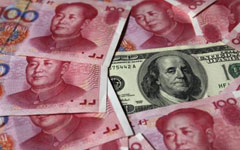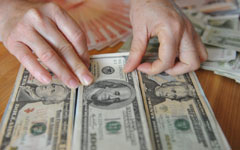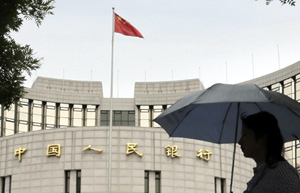BEIJING - China loosened its grip on the yuan-dollar exchange rate on Saturday, widening the daily trading band to two percent from one, effective starting this Monday.
The move, a major step forward in the country's exchange rate regime reform, did not surprise analysts as the central bank had made it clear it would widen the band this year.
China's currency, the yuan, started to fall against the US dollar early this year after a string of appreciations in 2013. The yuan-dollar central parity rate nosedived 111 basis points on Monday, the sharpest daily decline since July 2012.
|
 |
 |
The central bank said in the announcement that two-way yuan fluctuation will become the norm.
"The announcement strengthens its signal that the one-way bet on a gaining yuan is over," Lu said.
In the second half of last year, a significant rise in domestic interest rates coupled with one-way growth of the yuan attracted a large inflow of hot money.
New funds outstanding for foreign exchange stood at 437.4 billion yuan in January, hitting a three-month record, and all the monitored financial institutions reported rises in such funds over the past six months.
A more volatile yuan-dollar exchange rate without an appreciation trend will deter hot money inflow and perhaps result in some unwinding of previous inflow, Lu predicted.
Zhu Haibin, J.P. Morgan's chief China economist, also said a capital outflow will help drain domestic liquidity and that possible yuan depreciation could support exports.
Chinese exporters, who may need time to adapt to a more volatile yuan, will overall benefit from the band widening, which sends a strong signal for the end of one-way appreciation, they said.
|
 |
 |
